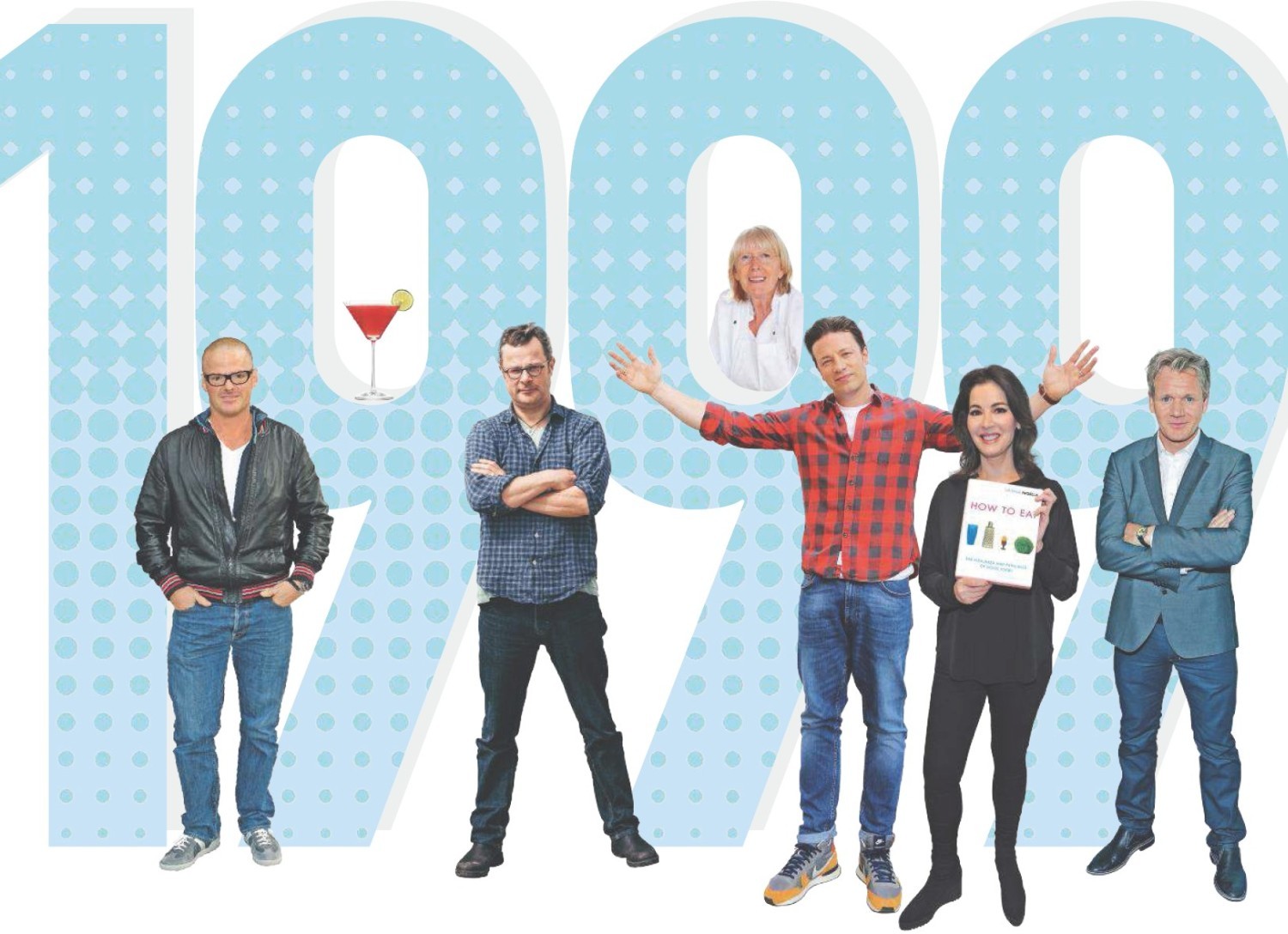
PHOTOGRAPHS: ISTOCK/GETTY IMAGES, MATT AUSTIN
April 1999: a 23-year-old chef slides down some banisters, roasts some lamb, says ‘pukka’ several times… and changes Britain’s relationship with food. Jamie Oliver’s first series, The Naked Chef, began with these words: “Cooking’s gotta be simple. It’s got to be tasty. It’s got to be fun.” It was a manifesto for a new way of cooking: one that reclaimed food from Michelin-obsessed chefs and competitive dinner parties. Yet no one could have predicted just how much of an impact Jamie would have over the next 20 years.
It was a momentous year for food. Nigella Lawson’s How to Eat was a huge hit. River Cottage made its TV debut just as the mantras ‘eat local’ and ‘eat seasonal’ were taking root. Few people could have realised it – distracted as we were by the Y2K bug, Britney Spears and The Matrix – but the stage was being set for the thriving British food culture we have today.